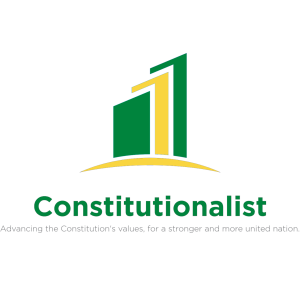How Self-Declared Sovereigns Challenge Government Authority
Individuals who identify as “freemen on the land,” “self-sovereign individuals,” or similar, challenge government authority by asserting that they are not bound by statutory laws or government regulations unless they personally consent. Their actions are rooted in a set of beliefs about law, contracts, and individual rights, often based on alternative interpretations of legal and constitutional principles.
Common Methods of Challenge
1. Refusal to Comply with Statutory Requirements
- Many self-sovereign individuals decline to obtain government-issued documents such as driver’s licenses, vehicle registrations, or tax identification numbers.
- They may create and use their own identification cards, license plates, or documents, asserting these are sufficient for travel or commerce.
2. Pseudolegal Documents and Filings
- They often submit unconventional paperwork to courts or government offices, such as:
- “Notices of Understanding and Intent”
- “Affidavits of Truth”
- Liens against public officials
- Declarations of “living man/woman” status
- These documents are intended to assert their claimed independence from government authority, though courts do not recognize them as valid.
3. Courtroom Tactics
- In court, these individuals may:
- Refuse to acknowledge their legal name, insisting on being addressed as a “living man” or “living woman.”
- Demand that the court prove its jurisdiction over them.
- Question the legitimacy of the judge’s oath or the court’s authority.
- Use specific language or avoid certain words to try to avoid “contracting” with the court.
4. Consent and Contract Arguments
- They claim that government authority is based on contract, and that by not consenting or not entering into a contract (for example, by not responding to official correspondence), they are not subject to government laws.
5. Alternative Legal Structures
- Some establish their own “common law courts” or community assemblies, which have no recognition under national law, to handle disputes or issue declarations of sovereignty.
6. Tax and Regulatory Protests
- Many refuse to pay taxes, register property, or comply with regulations, arguing that these are illegitimate or do not apply to them as free people.
7. Occasional Direct Confrontation
- While most actions are nonviolent, there have been instances where individuals have physically resisted law enforcement or attempted to enforce their beliefs through threats or direct action.
Summary Table
| Method | Description |
|---|---|
| Refusal to comply | Rejecting taxes, licenses, registrations, and government IDs |
| Pseudolegal filings | Submitting unconventional documents or notices |
| Courtroom tactics | Challenging jurisdiction, refusing legal names, using specialized language |
| Consent/contract arguments | Claiming laws only apply by personal agreement |
| Alternative legal structures | Creating “common law courts” or assemblies |
| Tax/regulatory protest | Refusing taxes or regulatory compliance |
| Direct confrontation (rare) | Physical resistance or threats toward authorities |
Legal and Practical Outcomes
Courts and authorities do not recognize these arguments or documents as valid, and attempts to use them can result in fines, criminal charges, or other legal consequences. The mainstream legal system operates on the basis that laws apply to everyone within a jurisdiction, regardless of personal consent or alternative beliefs.
If you want more detail on any specific tactic or historical examples, just let me know!

